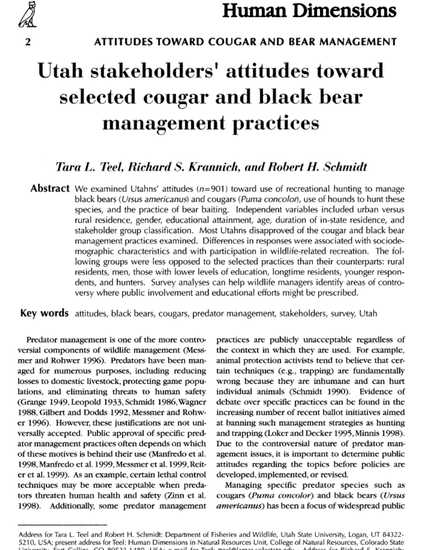
Article
Utah Stakeholdersʼ Attitudes Toward Selected Cougar and Black Bear Management Practices
The Wildlife Society Bulletin
(2002)
Abstract
We examined Utahns' attitudes (n=901) toward use of recreational hunting to manage black bears (Ursus americanus) and cougars (Puma concolor), use of hounds to hunt these species, and the practice of bear baiting. Independent variables included urban versus rural residence, gender, educational attainment, age, duration of in-state residence, and stakeholder group classification. Most Utahns disapproved of the cougar and black bear management practices examined. Differences in responses were associated with sociodemographic characteristics and with participation in wildlife-related recreation. The following groups were less opposed to the selected practices than their counterparts: rural residents, men, those with lower levels of education, longtime residents, younger respondents, and hunters. Survey analyses can help wildlife managers identify areas of controversy where public involvement and educational efforts might be prescribed.
Keywords
- stakeholders,
- predator,
- management
Disciplines
Publication Date
2002
Citation Information
Teel, T. L., R. S. Krannich, and R. H. Schmidt. 2002. Utah stakeholdersʼ attitudes toward
selected predator management issues. Wildlife Society Bulletin 30:2-15.
